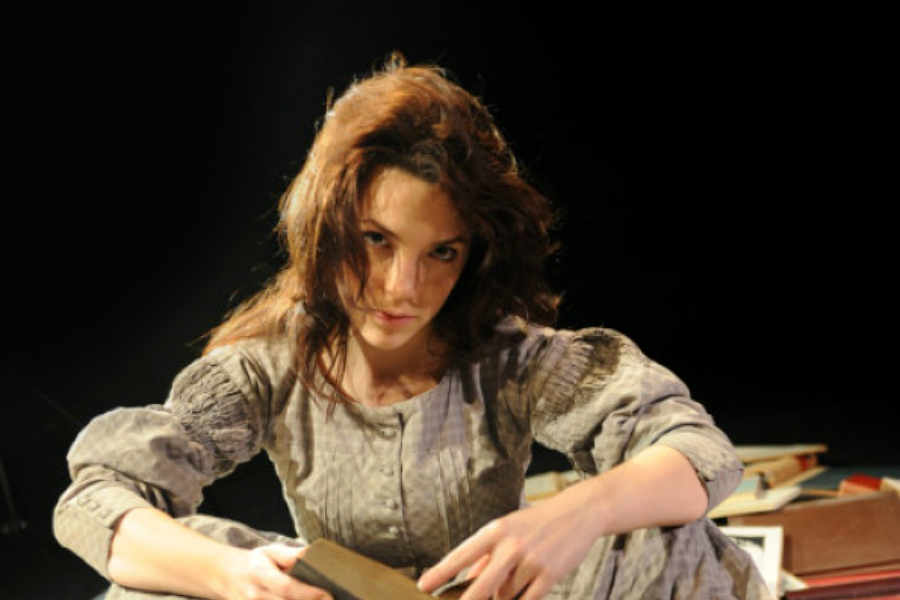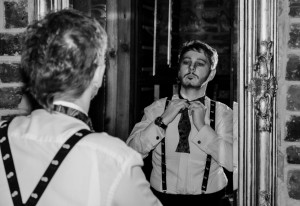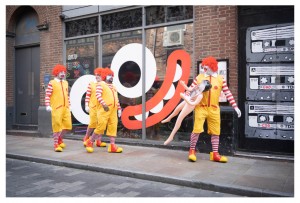Mary Shelley – Reviewed

An award winning theatre company provide an engrossing insight into the making of a monster…
Dept, illegitimacy, suicide and moral panic; in Mary Shelley, theatre company Shared Experience have brought us kitchen sink drama, 19thcentury style. At first glance, opting to eschew the looming F-word with which she is associated in favour of a focus on her home and personal life seems folly. This fear is swiftly proved misplaced as the very real drama of Mary’s life unfolds before our eyes.
The play began, says writer Helen Edmundson, with a question: “How did Mary Shelley, aged only 18, come to write a novel of such weight and power as Frankenstein?” With such a starting point, this could easily have become a technical exercise, a dramatic version of joining the dots. Instead what writer Edmundson and director Polly Teale deliver is a play full of human anxiety and emotion, and in Mary, played captivatingly by Kristin Atherton, a prodigious young woman striving for self discovery.
Returning from an enforced break in Scotland, Mary’s is a broken home, which can lay claim to offspring by three different fathers and two mothers. The Godwin household, ostensibly headed up by father and radical thinker William (William Chubb), is unconventional to say the least.
Mary’s sisters, the air-headed Jane (Shannon Tarbet), and Fanny (Flora Nicholson) – the play’s moral centre – are already in thrall to Percy Bysshe Shelley, a poet and acolyte of her father’s. Upon the pair’s inevitable fateful meeting, Shelley (played by Ben Lamb) and Mary fall instantly, head over heels in love (or is it lust?) with each other.
This sets in motion a series of events which eventually lead to the pair’s elopement in France, taking Jane with them for good measure, much to the chagrin of Stepmother Mrs Godwin (Sadie Shimmin). What follows is heart-rending stuff; Mary falls pregnant and loses a child, while Jane continues in a dangerous game of flirtation with the well-meaning but selfish and irresponsible Shelley.
Following a tryst with Lord Byron, Jane too becomes pregnant and the trio return to England, yet greater shame cast against the family as the episode is reported in the press. Ties now seemingly irreparably divided, the factions resort to using Fanny as go-between and messenger. Eventually, the strain of the situation and her being torn between moral responsibility and a longing to escape her life of drudgery and spinsterhood, Fanny decides she must instead end it.
In committing suicide Fanny, albeit unknowingly, performs what appears to be a final selfless act, paving the way for what eventually leads the family toward reconciliation. Her death puts their squabbles into perspective, and when Shelley and Mary plan to marry, the Godwins accept their invitation to the wedding.
At this point, a thought occurs to us: all this and no mention of Frankenstein. Not one. But with the play hurtling toward its denouement, there is a face-off between Mary and her father where the novel is finally alluded to, if not mentioned in name. A powerful scene, Mary casts her father William as the Doctor Frankenstein to her monster. Explaining the themes of the book, Mary says it’s “about a man who … creates a creature … But when he has created it … he cannot countenance its needs”.
At this point, the audience is on tenterhooks, fearing for the relationship central to Mary’s life. Thankfully, and at the last moment, there is a mutual climb-down, William light-heartedly proffering that although he cannot promise to be kind, he “should like to read it”.
Mary Shelley is a fine piece of theatre with strong performances throughout. If we’ve tended to focus on the drama of the play, it’s simply because of its compelling nature. But have no fear, thanks to Edmundson, the production is laced with both gallows and silly humour alike, much of it provided by the superb Shannon Tarbet. It may have been the extra-large glass of red we had in the intermission, but if The Double Negative awarded stars, we’d be hard-pushed not to give this the maximum five out of five.
Mary Shelley continues at Liverpool Playhouse until Saturday the 12th May





